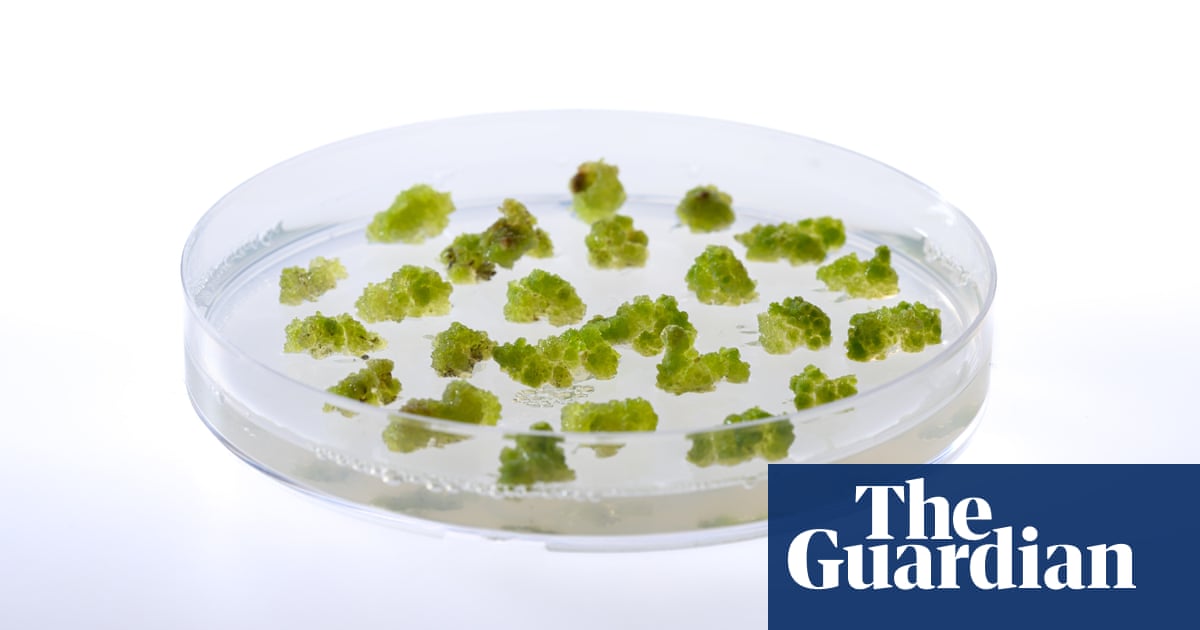
In the face of growing food security concerns due to climate change, scientists in New Zealand are attempting to grow fruit tissue in labs.
While work on lab-grown meat has made headlines in recent years, similar work on fruit is less common. Scientists at Plant & Food Research in the southern city of Christchurch are aiming to change that by growing fruit tissue from plant cells that they hope will one day taste, smell and feel like real fruit. Researchers hope that the program will help safeguard the country’s food security.
“Here in New Zealand, we’re good at growing conventional horticultural crops,” said Dr Ben Schon, the lead scientist for the Food by Design program at the government-backed Plant & Food Research, “but looking into the future, there’s a lot of change coming in the world with population growth, increasing urbanisation and climate change.”
The program aims to grow fruit tissue without the parts that are usually discarded like the core of the apple or the rind of an orange. Providing consumers with only the tissue of fruit will help reduce food waste, said Schon.
Lab-grown foods could play a pivotal role in sustainable agriculture but are still in very early stages of development, according to Dr Ali Rashidinejad, a senior food scientist at Massey University in Palmerston North who is not involved in the program.
Since lab-grown food is a completely new concept, once it is developed, it will then have to prove its safety to regulatory bodies likely through expensive and long clinical trials. “Overcoming such hurdles can take years if not decades,” Rashidinejad said.
Consumers will also need to accept the practice; older generations might prove to be hesitant but research shows that younger generations are willing to try new foods if those foods offer health benefits while limiting environmental impact, said Rashidinejad.
The Plant & Food Research program, which started 18 months ago, focuses on cells from blueberries, apples, cherries, feijoas, peaches, nectarines and grapes, but they warn that the end goal of harvesting something that is nutritional and enjoyable to eat is some years away and might not be attainable at all.
The technology would probably be suitable for growing fruit tissue within cities, said Dr Sam Baldwin, a strategy leader at Plant & Food Research, in the hope that it would reduce the cost and carbon emissions created when transporting food into urban centres.
However, it’s unclear how the carbon footprint of such lab-grown fruit would compare to those grown using traditional methods, which may have to be transported long distances if imported.
The technology could also offset the food lost in weather events. Earlier this year, Cyclone Gabrielle, decimated parts of Hawkes Bay, an area known as New Zealand’s fruit bowl. The cyclone came as many kiwifruit growers were preparing to harvest their crops.
“I’m not sure we realise that we are going to need to produce more food for a bigger population but with less areas to grow and under increasing pressure from a non-conducive climate,” said Baldwin.
“Business as usual might not be able to address that need.”
"fruit" - Google News
September 08, 2023 at 06:00AM
https://ift.tt/GAQYdTN
In the face of climate change and food insecurity, New Zealand considers lab-grown fruit - The Guardian
"fruit" - Google News
https://ift.tt/wLj6V7E
https://ift.tt/pKPVM8A
Bagikan Berita Ini














0 Response to "In the face of climate change and food insecurity, New Zealand considers lab-grown fruit - The Guardian"
Post a Comment